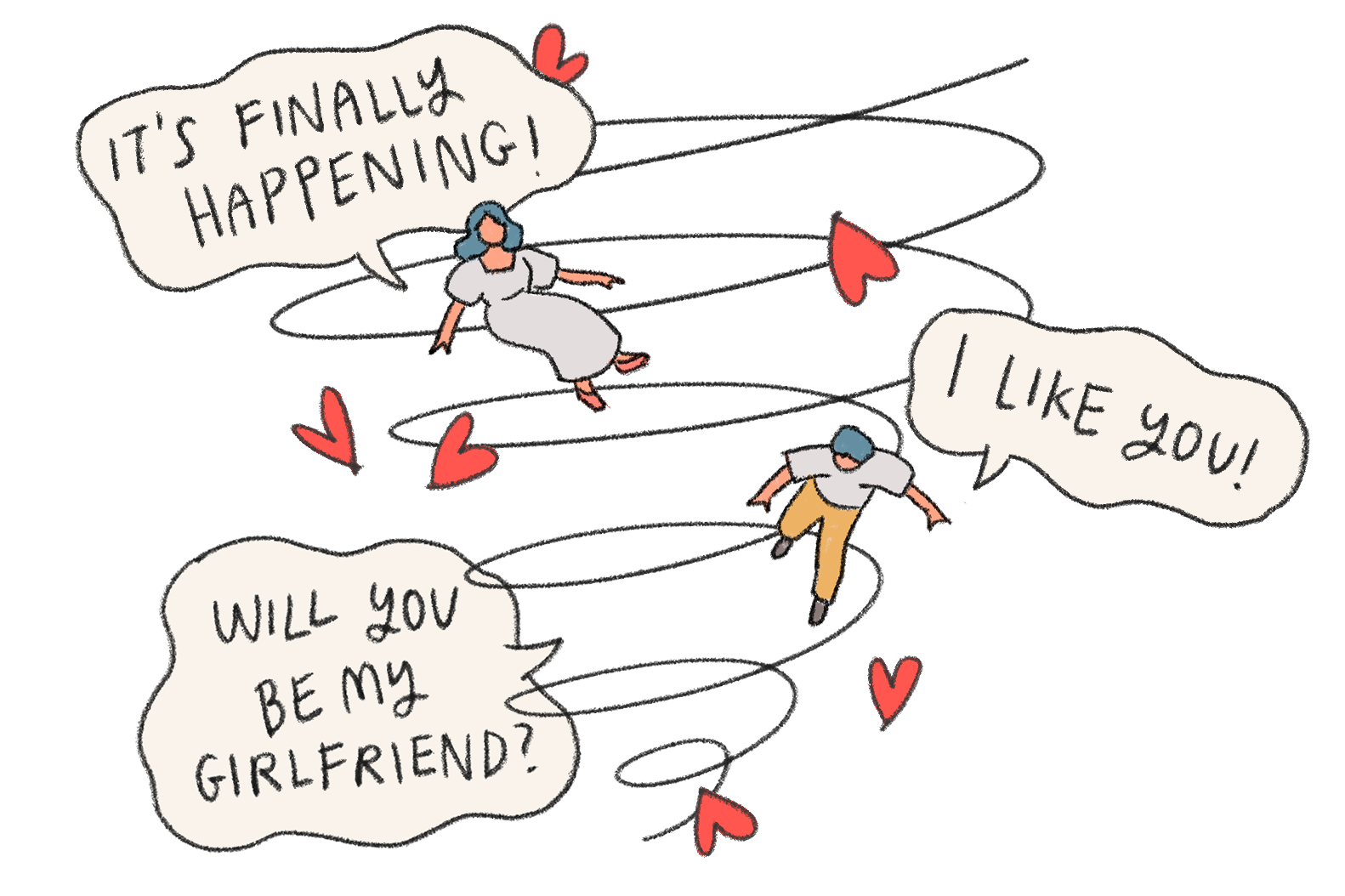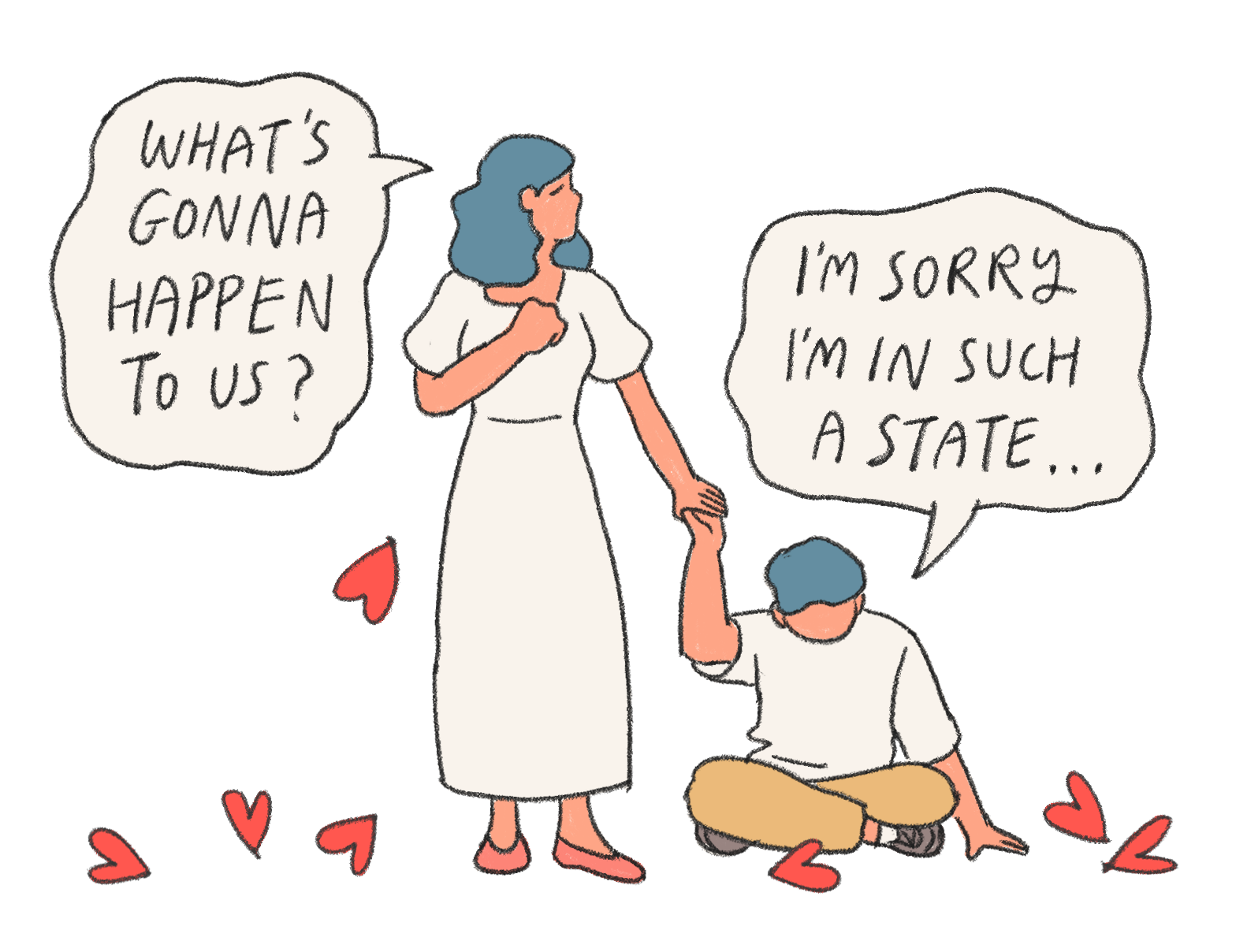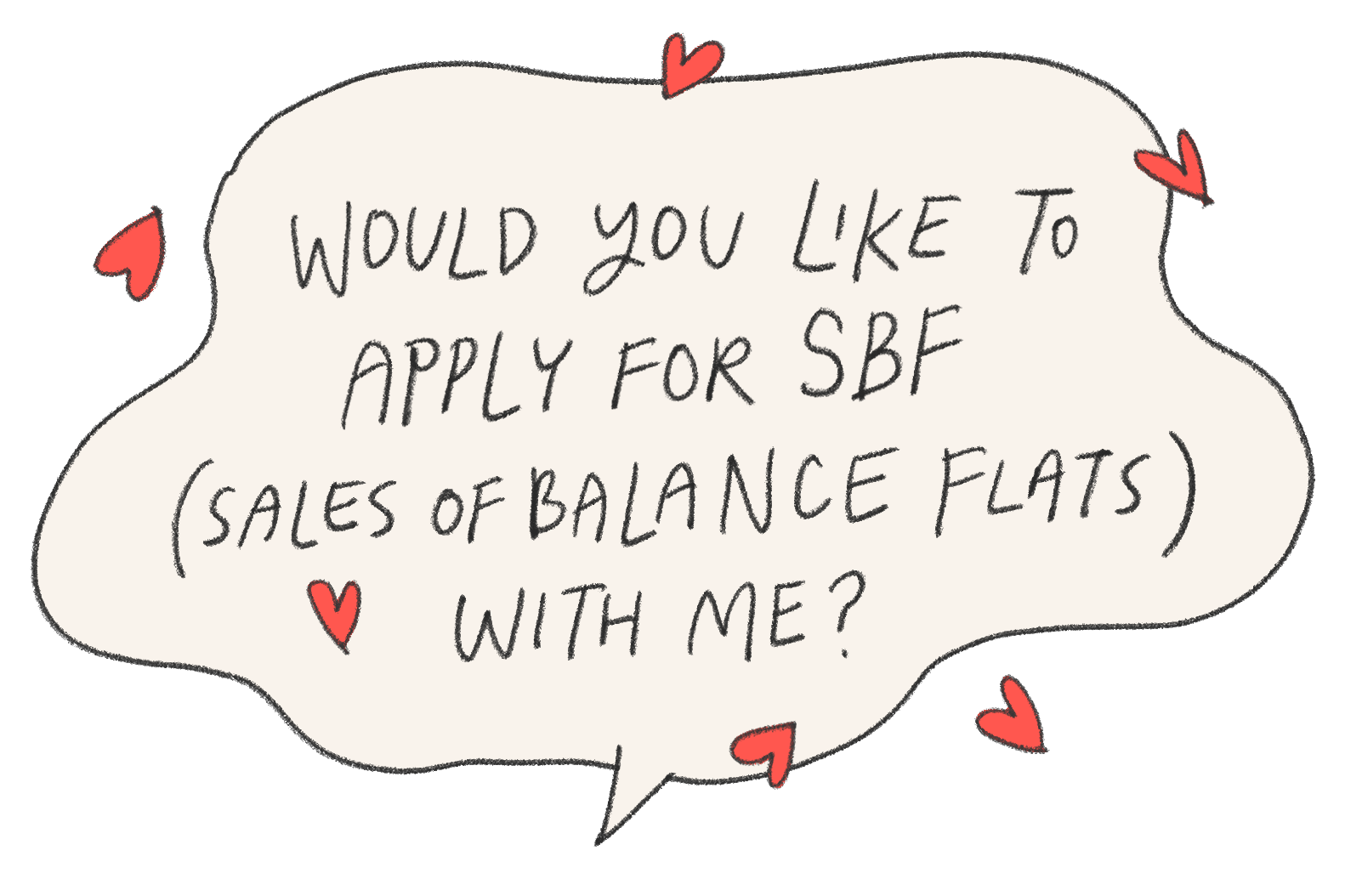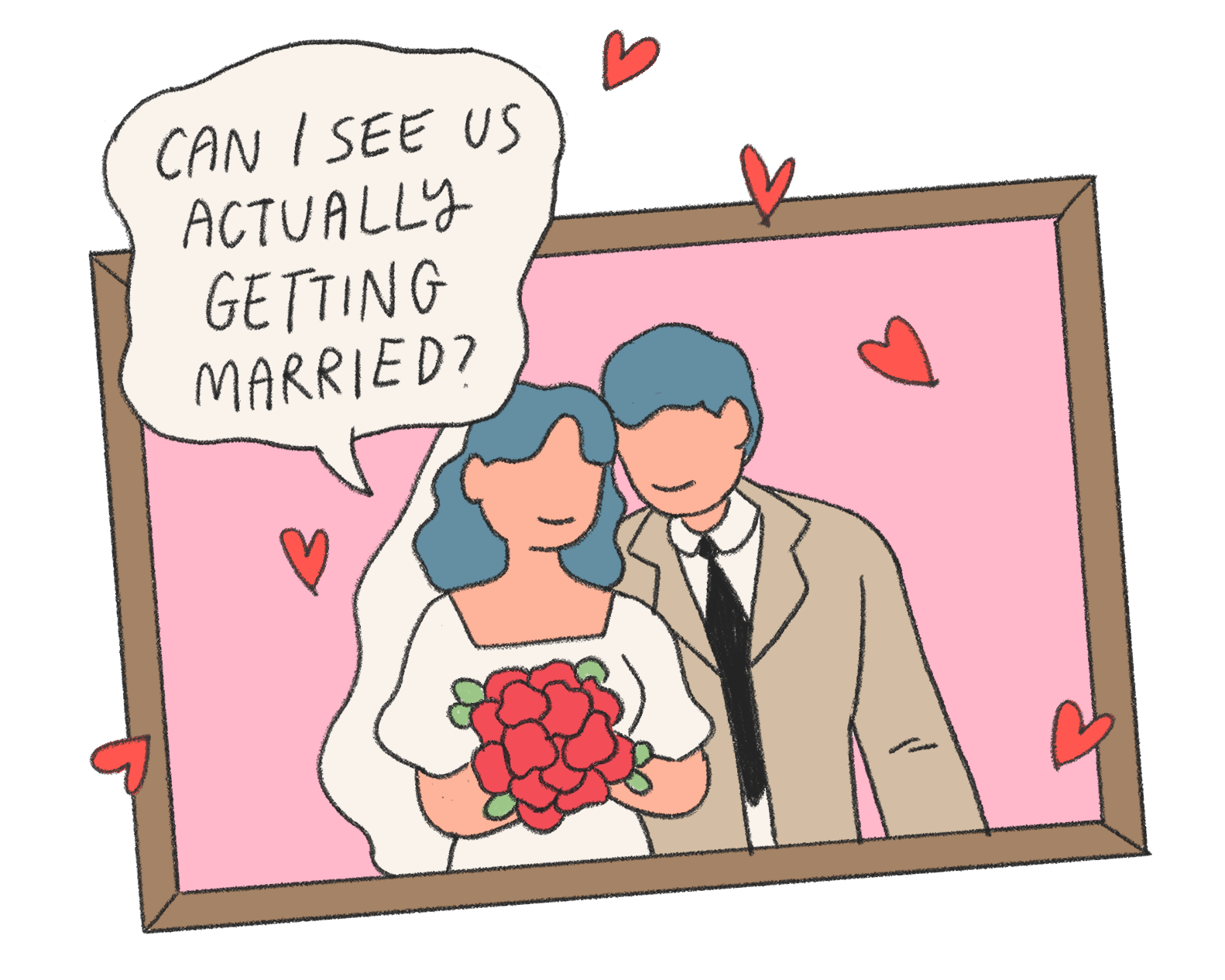Some people say life changes after 30, and I believe it did change the way I viewed relationships as well.
I started dating my fiancé after my 30th birthday. Suddenly, timelines felt shorter, more urgent and it became less foreign to be discussing marriage that early on in the relationship.
I was a second-generation Christian who had always wanted to date and marry another believer who was serious in his faith. Despite dating widely in my late teens and twenties before deciding to go on a dating fast after a series of unfortunate relationships (which is a story for another time), my fiancé and I met in church.
He was new to the church and to my cell group, and our whirlwind romance felt “right” since it happened so organically. I thought I had finally gotten it right.
Growing up in a Brethren church, with most of the married couples I know getting married before 30, I was also primed to believe that the right course of a courtship was to first be engaged, get married and then apply for a house.
It was never quite in my worldview to see things go any other way, even though my friends outside of church did that.

Five months into our relationship, he asked me The Question.
One uneventful evening, he asked if I had any property under my name, to which I said, “Nothing, only got my cat to my name.”
He replied, “And me… would you like to apply for SBF (Sale of Balance Flats) with me?”
I remember going into shock, with pins and needles going down my spine. It was a mixture of excitement, fear, wanting to burst out in giggles… but also shock from receiving the famed “BTO proposal”.
However, in the ten minutes that it took me to respond, I asked myself two important questions:
- Was this someone I could see myself getting married to?
- And would I regret saying yes to this?
Thankfully, I landed on an easy yes to his question.
Unexpected questions, and more questions
Even after saying yes, things were not smooth sailing after that. In the subsequent days that followed, I was faced with an unexpected, unnerving feeling.
Oh no, now I can’t take it back. What if he thinks I’m regretting this? Why do I feel this way?!
It wasn’t easy to initiate this conversation with my fiancé, and I don’t think I talked to him about it only months after we first started applying.
It was a mixed bag of emotions and responses. I remember feeling guilty for saying yes, but could not pinpoint why.
I remember not wanting to tell others about it too. I was apprehensive and wanted to wait until we got the initial results before even sharing the news with our friends. It felt like I had jumped the gun.

In the following months, we also fell into a crisis.
My fiancé suffered from a mental health breakdown, and the fear of having to forfeit our BTO or kickstarting the process only to break up after threw me into a feeling of shame.
Friends assured me that it was no big deal to just break off the BTO process since we were still waiting for a response, but it only made me feel worse.
Why did I feel that way even after I had said yes?

When we finally talked about my dilemma and struggles, I realised he never gave much thought to it since he grew up in a non-Christian home and did not share the same view or expectations of what a BTO proposal meant.
I felt a bit hurt knowing that we viewed it differently, and I wondered if I just placed too much weight on this BTO proposal.
Was I just being a prude? Did I not trust God with His timing and blessing for a house? Or was I just catastrophising? After all, wasn’t it just a $10 application fee?
In our following conversations over time, we identified our differences in perspectives.
While I fretted over whether or not we were ready for this big step towards greater commitment towards each other, his decision to proceed with the BTO application was fuelled by more practical reasons, such as long wait times for application and construction.
My uncertainty with it stemmed from my own commitment issues – I did not really understand what it meant to commit long-term since this was my first real serious relationship.
And together with that, I also had a whole slew of other issues left behind from previous relationships that had to be dealt with.
Questions about my self-worth were measured against some internal yardstick of whether someone else would view me worthy enough as a partner to make such a big commitment with, but speaking with trusted friends helped me understand better and challenge my worldview.
Let love lead your every decision
My fiancé and I had gone through three rounds of BTO applications before eventually signing our option to purchase.
In that period, we had also gone through so much in our relationship. Through the different issues we had to battle, I came to a realisation that we were deeply committed to each other regardless of our housing situation.
He proposed on Valentine’s Day over a home-cooked meal, over a year since we kickstarted the BTO process.
So back to the question: Is a BTO proposal okay?
If someone came to me with a similar dilemma, I would not be so quick to prescribe a solution, but I would ask about their motivations for application.
If it was just applying for the sake of practicality so as to cut down on the wait time for a house in future, I still believe that God is faithful and He provides – whether through a successful BTO application or other forms of housing eventually.
Instead, the better question we should be asking is: Can I see myself marrying this person?
We should only apply for a home when we are sure we can stay with this person for life, since it is a large financial decision.
But timing is subjective and the pace differs for every couple. In hindsight, applying for a flat six months into our relationship was truly a bit hasty. I would have tried to be more brave in voicing my thoughts and fears before I said yes.

Consider reaching out to relationship and marriage mentors, as well as kickstarting the pre-marriage counselling process if you are thinking of applying for a house. Talking to your peers and other married couples also helps you to gain perspective and godly counsel objectively from others who have gone before.
Building authentic friendship, being able to communicate truthfully and openly while developing trust all takes time and effort. Now as we prepare for our wedding, we have been reading Timothy Keller’s The Meaning of Marriage to better understand what biblical, covenantal marriage looks like.
I like this one quote he wrote:
“Love without truth is sentimentality; it supports and affirms us but keeps us in denial about our flaws. Truth without love is harshness; it gives us information but in such a way that we cannot really hear it.
God’s saving love in Christ, however, is marked by both radical truthfulness about who we are and yet also radical, unconditional commitment to us. The merciful commitment strengthens us to see the truth about ourselves and repent. The conviction and repentance moves us to cling to and rest in God’s mercy and grace.”
When my fiancé finally proposed more than a year after his BTO proposal, the one line he said that gave me deep assurance was: “Will you trust me to follow God and let Him lead us in this relationship?”
Looking back now, I thank God for His divine disruptions in our plans.
Even as we made detours in this Choose-Your-Adventure relationship story of ours, to trust and know that God is merciful and gracious at every step of the way also means that any “bad moves” we make (BTO proposal or not) can still be redeemed.









